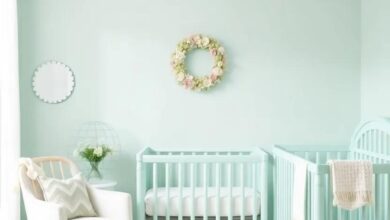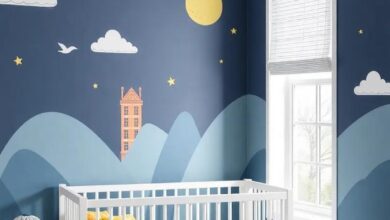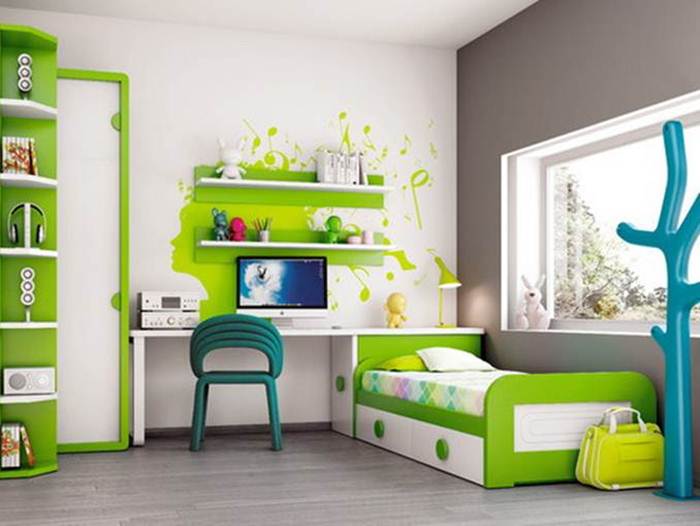
Discovering the Magic of Child-Friendly Room Design
From bedtime stories to playful adventures, a child’s room is their own magical kingdom. But how do we create a space that sparks their imagination and nurtures their growth? In this article, we will explore the enchanting world of child-friendly room design, where every corner holds the promise of discovery and wonder. Join us as we unlock the secrets to transforming a simple room into a place of joy, creativity, and endless possibilities for the little ones in your life.
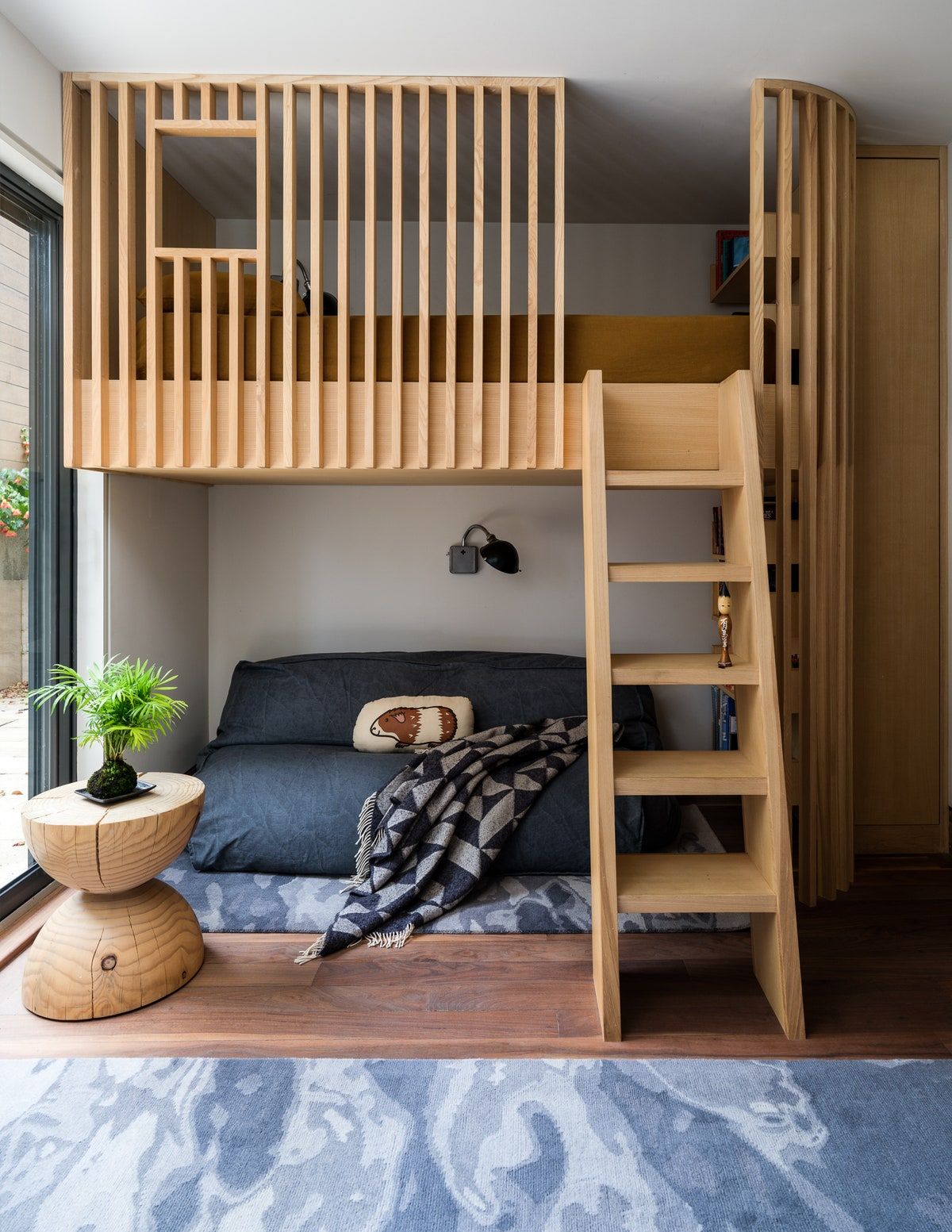 Creating a Space for Imagination and Creativity
Creating a Space for Imagination and Creativity
in children’s rooms goes beyond just choosing furniture and paint colors. It’s about crafting an environment that sparks wonder, curiosity, and endless possibilities. By incorporating elements that inspire play and exploration, you can help nurture your child’s creativity and foster a love for learning.
One way to create a magical space for your child is to incorporate interactive features like a chalkboard wall where they can freely express their ideas and let their imagination run wild. Encourage them to draw, write, and create to their heart’s content. Additionally, adding a reading nook with cozy pillows and shelves filled with books can ignite a passion for storytelling and open up a world of adventures right at their fingertips.
Incorporating whimsical themes like a space-themed bedroom or a jungle safari play area can transport your child to far-off lands and inspire endless hours of imaginative play. Use bold colors, fun patterns, and creative decor pieces to bring these themes to life. By designing a room that encourages creativity and imagination, you are providing your child with a space where they can dream, explore, and grow in ways they never thought possible.
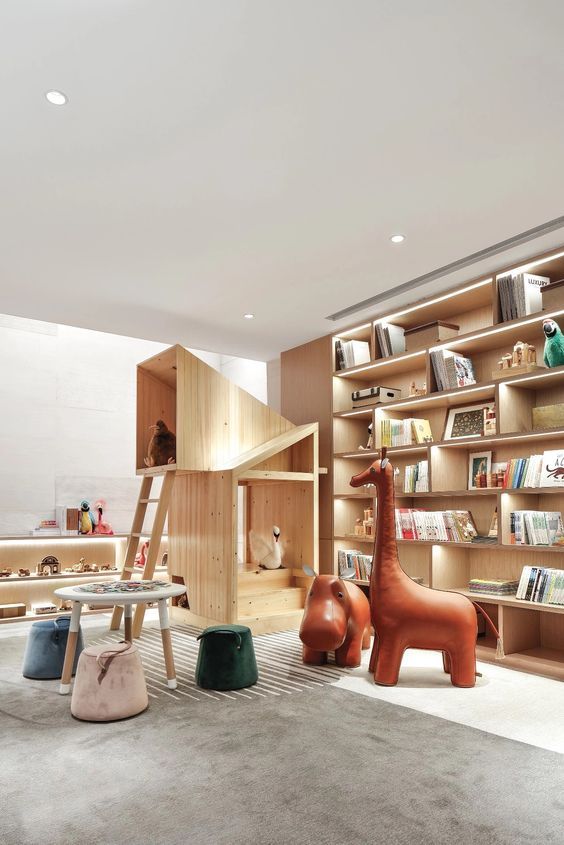 Incorporating Safety Measures without Sacrificing Style
Incorporating Safety Measures without Sacrificing Style
If you have children at home, safety is always a top priority when it comes to decorating their rooms. Fortunately, you can incorporate safety measures without sacrificing style. One way to achieve this balance is by choosing furniture with rounded edges and soft corners. This not only reduces the risk of injury but also adds a playful and whimsical touch to the room.
Another design element to consider is opting for non-toxic paint and materials for furniture and decor. **This** ensures that your child’s room is a safe environment free from harmful chemicals and toxins. You can also add safety gates to prevent access to certain areas of the room, while still maintaining a chic aesthetic.
When it comes to storage solutions, consider using bins and baskets that are easy for little hands to access. **This** not only encourages independence but also helps in keeping the room organized and clutter-free. Additionally, adding soft rugs and cushions can provide a cozy and comfortable space for your child to play and relax in. Safety and style can truly go hand in hand when designing a child-friendly room.
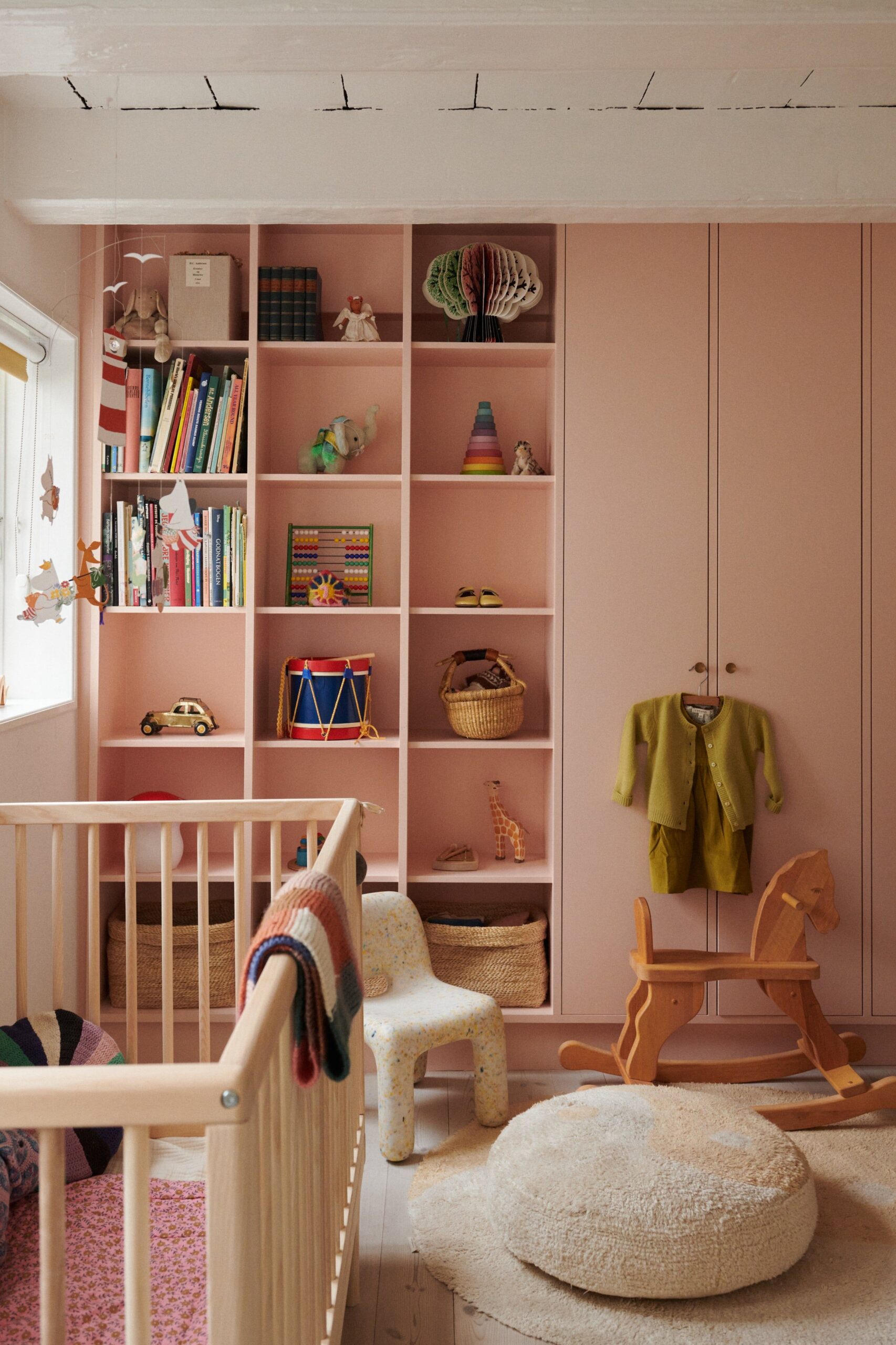 Choosing Colors and Patterns that Stimulate Learning
Choosing Colors and Patterns that Stimulate Learning
In designing a child-friendly room, one of the key elements to consider is the choice of colors and patterns. Colors play a vital role in stimulating learning and enhancing creativity in children. Bright and vibrant colors can create a stimulating environment that encourages active engagement and focus. On the other hand, softer pastel colors can help create a calming and soothing atmosphere that is conducive to relaxation and concentration.
When selecting colors for a child’s room, it is important to keep in mind the psychological effects that different hues can have. For example, blue is known to promote a sense of calm and tranquility, while yellow is associated with happiness and energy. Green is often linked to nature and growth, making it ideal for fostering a sense of harmony and balance. Red, on the other hand, can evoke passion and excitement, making it a great choice for areas where creativity and energy are encouraged.
In addition to colors, patterns can also play a significant role in enhancing learning and cognitive development in children. Incorporating shapes and patterns such as stripes, polka dots, or geometric designs can help stimulate visual perception and cognitive skills. By carefully selecting colors and patterns that complement each other, you can create a dynamic and inspiring environment that sparks imagination and creativity in young minds.
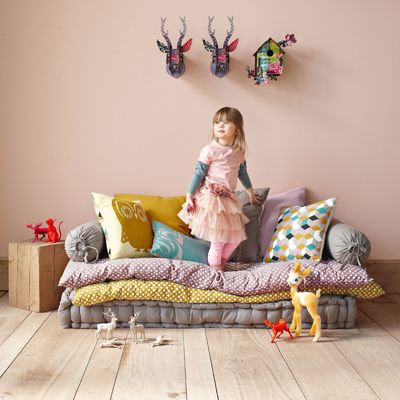 Furniture Selection: Finding the Perfect Balance of Functionality and Fun
Furniture Selection: Finding the Perfect Balance of Functionality and Fun
When it comes to designing a child-friendly room, the key is to strike the perfect balance between functionality and fun. Kids need a space that is not only practical but also sparks their imagination and creativity. By selecting furniture that is both practical and engaging, you can create a room that both you and your child will love.
One way to achieve this balance is by choosing multi-functional furniture pieces that serve a dual purpose. For example, a bunk bed with built-in storage compartments can help maximize space in a small room while providing a fun sleeping area for your child. Additionally, colorful and whimsical furniture pieces like a rainbow bookshelf or a dinosaur-shaped chair can add a playful touch to the room.
Incorporating interactive elements into the furniture can also enhance the fun factor of the room. Consider adding a chalkboard wall or a magnetic board to a desk or dresser, allowing your child to express their creativity and personalize their space. By blending functionality with elements of fun, you can create a child-friendly room design that is both practical and magical.
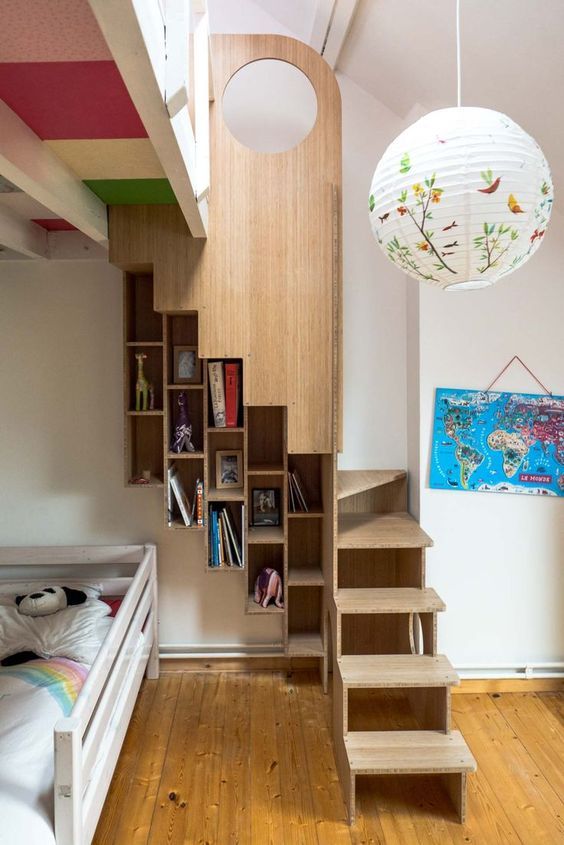 The Importance of Storage Solutions in Child-Friendly Rooms
The Importance of Storage Solutions in Child-Friendly Rooms
When it comes to designing child-friendly rooms, storage solutions play a crucial role in creating a safe and organized space for little ones to thrive. A well-designed storage system not only helps keep the room clutter-free but also encourages children to develop good organizational habits from a young age. With the right storage solutions in place, kids can easily access their belongings and learn the importance of tidiness and responsibility.
**Benefits of incorporating storage solutions in child-friendly rooms:**
-
- Maximizes space utilization
-
- Promotes organization and cleanliness
-
- Enhances safety by reducing clutter
-
- Encourages independence and responsibility
| Storage Solutions | Features |
|---|---|
| Toy Chest | Large storage capacity for toys |
| Bookshelf | Provides easy access to books |
| Under-bed Storage | Utilizes vertical space effectively |
With a thoughtful selection of storage solutions, parents can create a functional and aesthetically pleasing room that meets the unique needs of their children. From toy chests to bookshelves and under-bed storage containers, there are plenty of options available to suit different preferences and room sizes. By investing in quality storage solutions, parents can help their kids enjoy a sense of independence and ownership over their personal space, fostering a positive environment for growth and development.
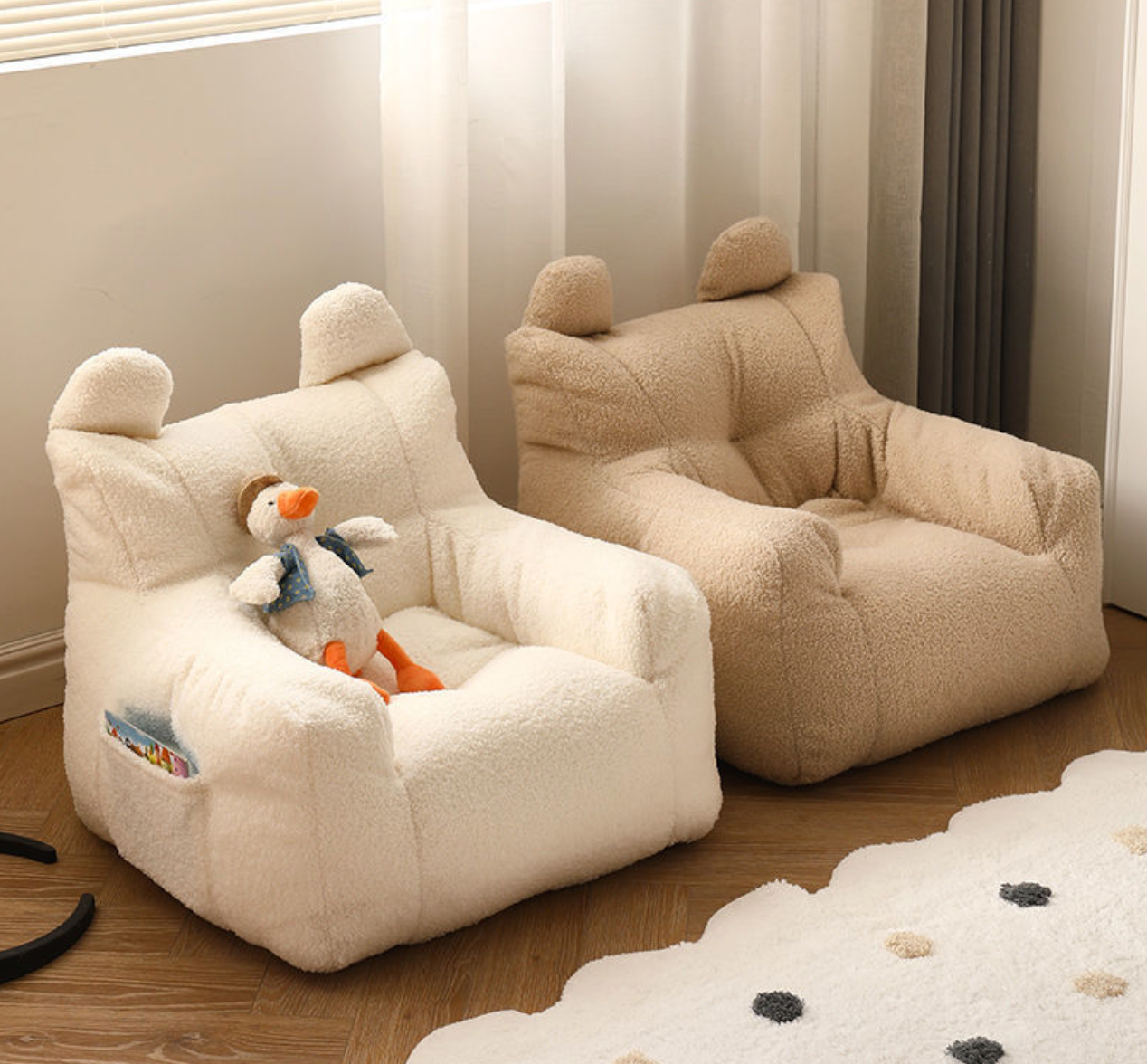 Enhancing Comfort through Soft Furnishings and Textures
Enhancing Comfort through Soft Furnishings and Textures
Soft furnishings and textures play a crucial role in creating a cozy and inviting atmosphere in a child’s room. By incorporating plush rugs, fluffy pillows, and snuggly blankets, you can enhance comfort levels and make the space feel warm and welcoming. Opt for soft materials like cotton, wool, and faux fur to add a touch of luxury to the room.
Experiment with different textures to stimulate your child’s senses and promote sensory development. Consider mixing smooth fabrics with tactile elements like knitted poufs, velvet curtains, and shaggy bean bags. These textures not only provide a sensory experience but also add visual interest to the room. Create a sensory corner with a variety of textures for your child to explore and play with.
Incorporating child-friendly design elements such as whimsical patterns, playful colors, and fun shapes can bring a sense of magic and wonder to the room. Choose bedding with colorful prints, add a quirky lamp or a statement wall decal, and include storage solutions that double as interactive play spaces. By embracing creativity and imagination in your design choices, you can transform your child’s room into a magical sanctuary where they can relax, play, and dream.
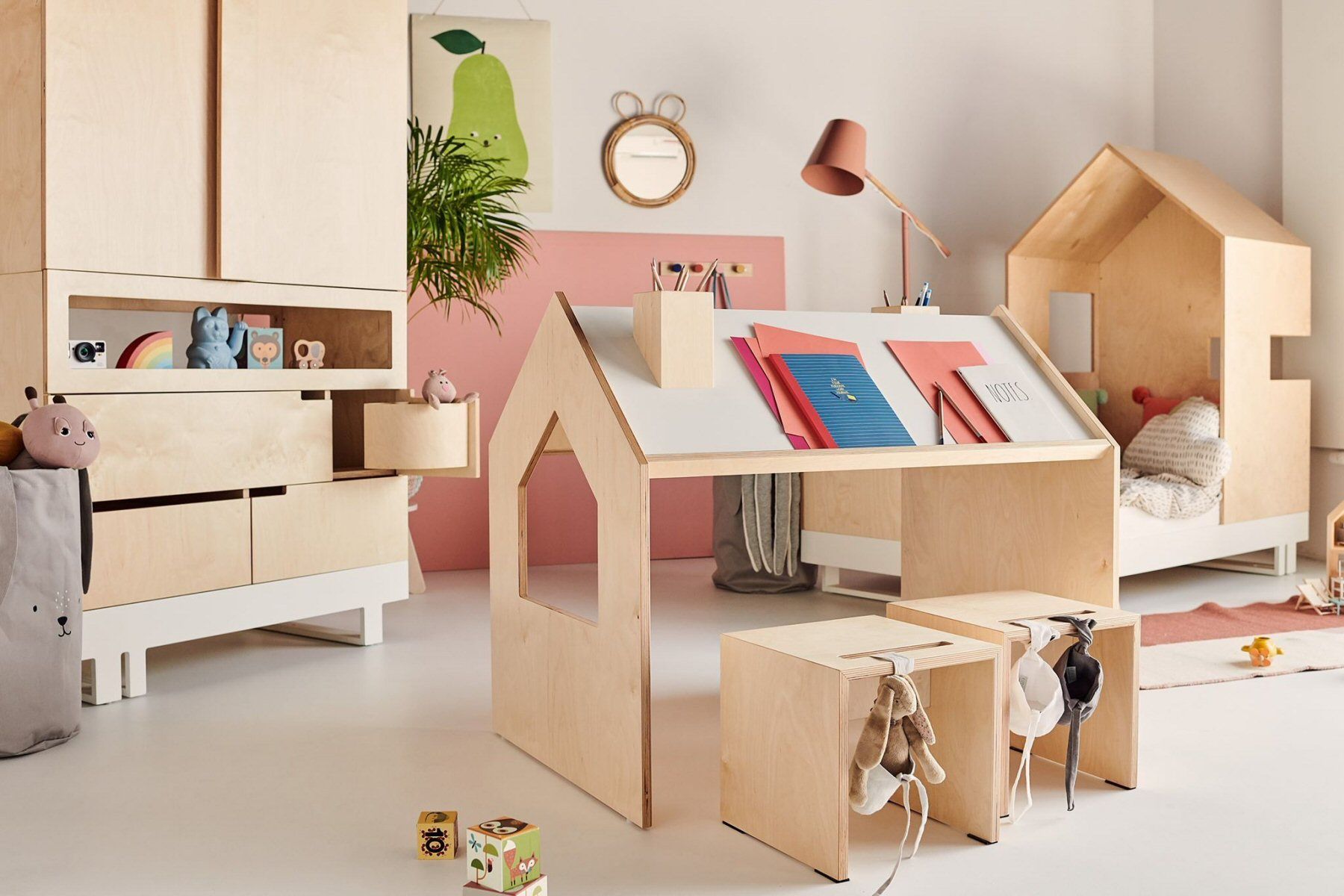 Striking the Right Balance between Play and Study Areas
Striking the Right Balance between Play and Study Areas
When designing a child’s room, it is crucial to strike a balance between play and study areas. This balance ensures that children have a space that is both fun and conducive to learning. By carefully planning the layout and design of the room, parents can create an environment that encourages their child’s growth and development.
One way to achieve this balance is by incorporating versatile furniture pieces that serve both as play stations and study areas. For example, a table with storage compartments can double as a study desk and a space to store toys or art supplies. Similarly, a cozy reading nook can also be used as a quiet area for homework or reading.
Additionally, using bright and stimulating colors can help create a playful atmosphere in the room, while also promoting creativity and productivity. Consider adding decorative elements such as wall decals, rugs, and curtains in vibrant hues to enhance the overall design. By combining practicality with imagination, parents can create a room that fosters a love for learning and play in their child.
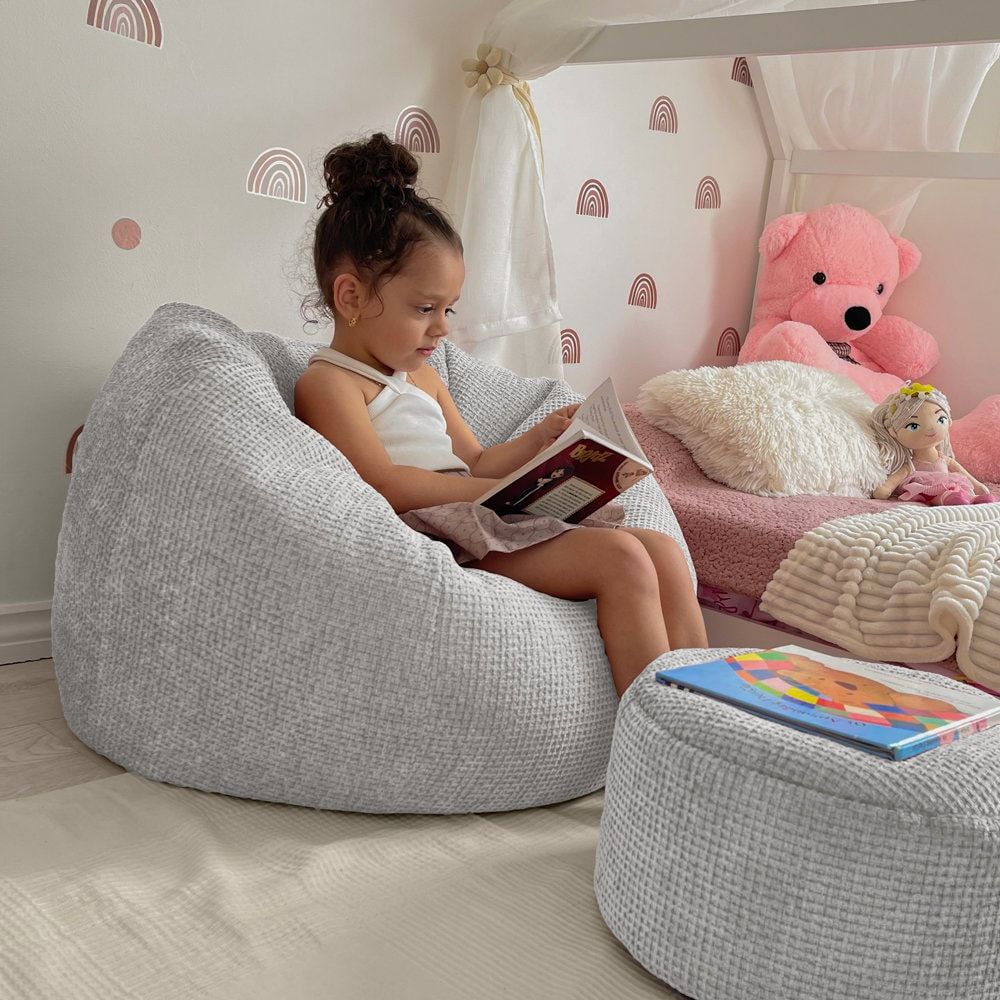 Promoting Independence with Child-Friendly Room Layout
Promoting Independence with Child-Friendly Room Layout
Children’s bedrooms should be a sanctuary for play, creativity, and, most importantly, independence. By designing a child-friendly room layout, you can empower your little one to explore and discover the magic of their own space. Incorporating elements that promote independence can help foster a sense of confidence and self-reliance in your child.
One key aspect of creating a child-friendly room layout is to ensure everything is within reach for your little one. Consider installing low-hanging shelves or hooks for easy access to toys, books, and clothes. Encourage organization by providing colorful bins or baskets for storage, making it easier for your child to clean up after themselves. This not only teaches responsibility but also allows them to navigate their space independently.
Another way to promote independence in a child-friendly room layout is to designate specific areas for different activities. Create a cozy reading nook with a bean bag chair and a bookshelf, a play area with a soft rug and toy bins, and a study corner with a child-sized desk and supplies. Allow your child to make choices about how they use each space, fostering a sense of ownership and autonomy in their room. By providing opportunities for decision-making, you are empowering your child to express their individuality and creativity in their own special space.
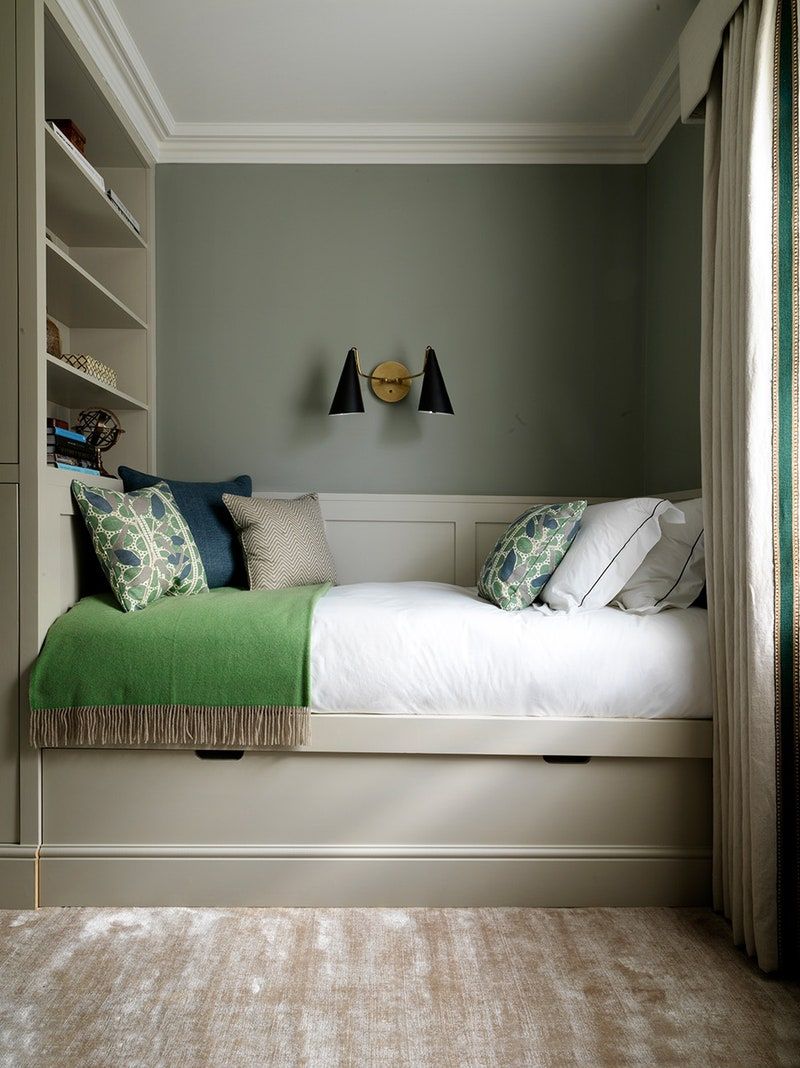 Adding Personal Touches: Customization Ideas for Kids Bedrooms
Adding Personal Touches: Customization Ideas for Kids Bedrooms
Adding personal touches to a child’s bedroom can truly transform the space into a magical wonderland for your little one to enjoy. Here are some unique customization ideas to bring a touch of creativity and fun to their room:
Creating a themed bedroom can ignite your child’s imagination and make their room feel like a special retreat. Some popular themes include:
-
- Princess Palace: Decorate with pink and gold accents, canopy beds, and fairy lights.
-
- Space Adventure: Hang glow-in-the-dark stars, planets, and a rocket ship bed.
-
- Under the Sea: Incorporate shades of blue, sea creature wall decals, and a mermaid or pirate theme.
Adding personalized elements, such as wall decals with your child’s name, custom artwork, or a gallery wall of their favorite photos and drawings, can make the room feel truly unique and special. Consider incorporating their favorite colors, hobbies, and interests into the design to reflect their personality.
| Furniture | Color Scheme |
| Choose fun and functional pieces, like a whimsical bed frame or a play table with storage. | Consider bright, playful colors like yellow, turquoise, or pastel shades to create a lively atmosphere. |
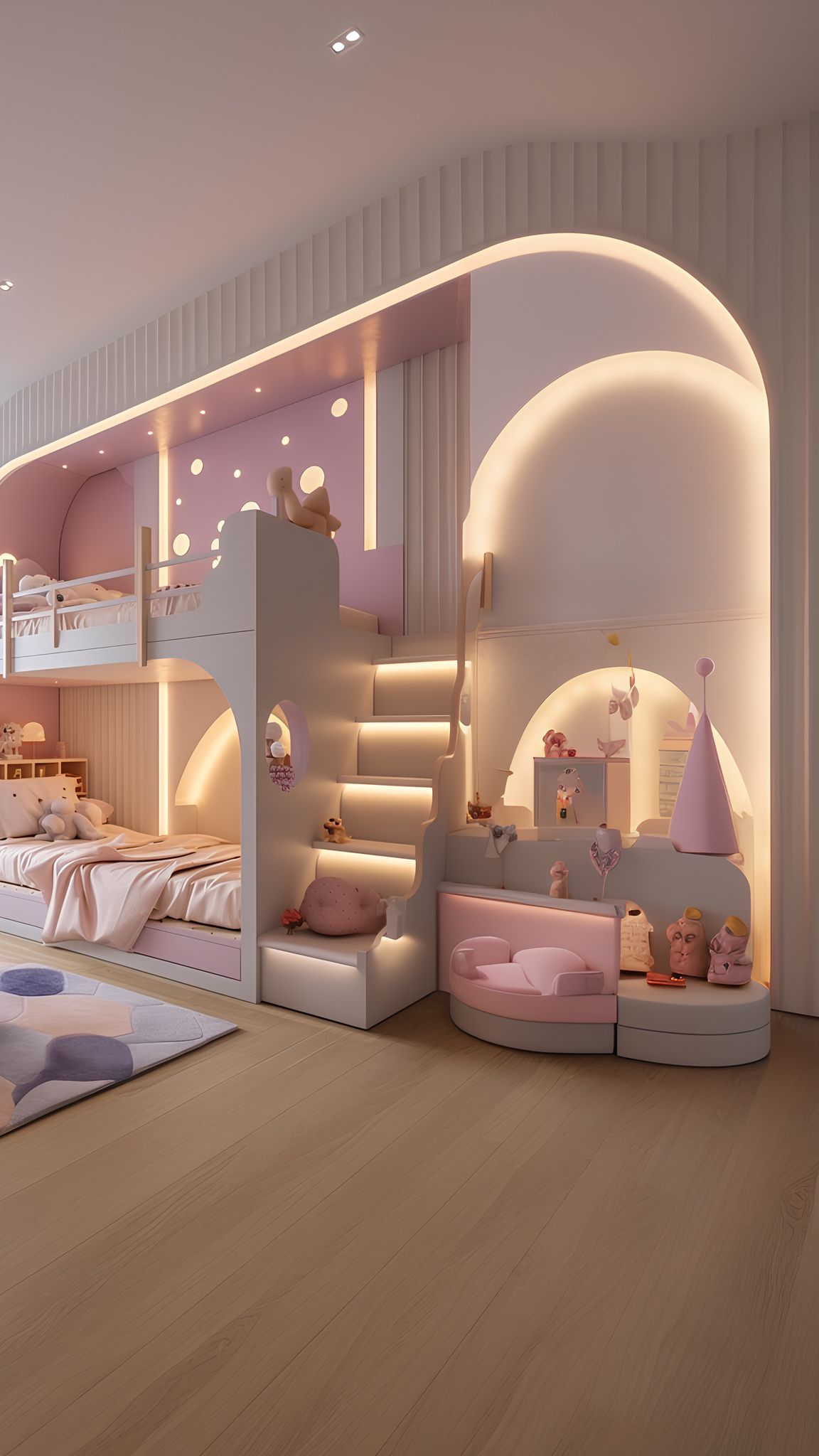 Innovative Lighting Ideas to Spark Wonder and Enchantment
Innovative Lighting Ideas to Spark Wonder and Enchantment
One way to create a magical and enchanting atmosphere in a child’s room is through innovative lighting ideas. By incorporating fun and whimsical lights, you can spark wonder and creativity in their space. Consider using string lights in various shapes and colors to add a playful touch to the room. You can hang them around the ceiling or drape them over a canopy bed for a cozy and dreamy effect.
Another creative lighting idea is to use projector lights to create a magical scene on the walls or ceiling. These lights come in various themes such as stars, animals, or underwater worlds, adding a touch of enchantment to the room. For a DIY approach, you can also create your own custom projector light with stencils and a flashlight for a personalized touch.
To enhance the magical atmosphere further, consider incorporating interactive lighting elements such as touch-sensitive lights that change color with a simple tap. These lights not only provide a fun and engaging experience for children but also add a dynamic element to the room. Additionally, you can add glowing LED nightlights in the shape of their favorite characters or animals for a comforting and whimsical touch. By mixing and matching these innovative lighting ideas, you can create a truly enchanting space that sparks wonder and imagination in your child’s room.
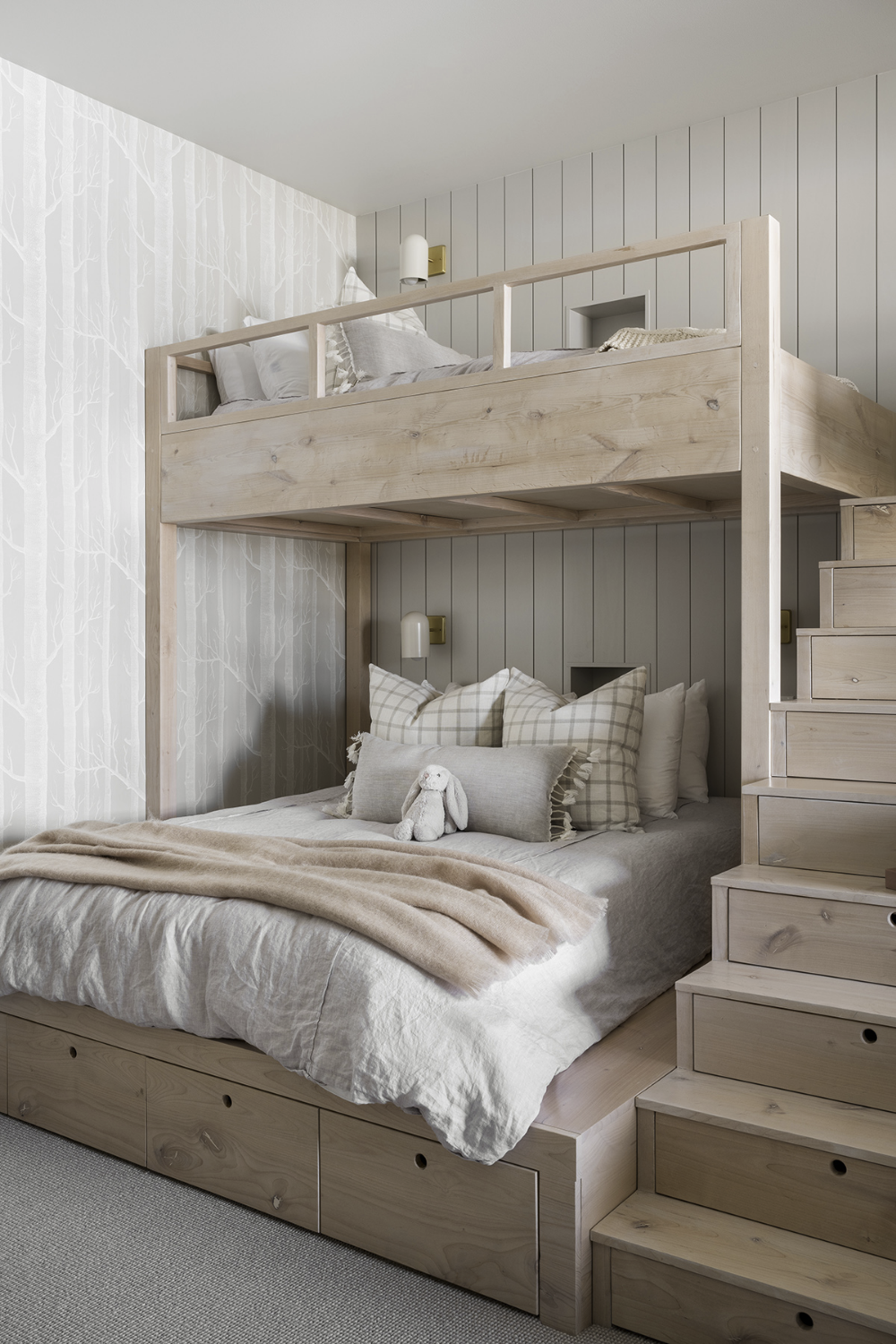 Creating a Sustainable and Eco-Friendly Environment for Kids
Creating a Sustainable and Eco-Friendly Environment for Kids
Designing a child-friendly room that is both sustainable and eco-friendly is not only beneficial for the environment but also for the health and well-being of our little ones. By incorporating eco-friendly materials and sustainable practices into the design of a child’s room, we can create a space that is not only safe and healthy but also promotes a sense of environmental responsibility. From non-toxic paints and organic bedding to energy-efficient lighting and furniture made from sustainable materials, there are countless ways to make a child’s room eco-friendly.
When it comes to , one of the key considerations is the use of natural and non-toxic materials. Opting for organic and sustainable materials such as bamboo, cork, and reclaimed wood can help reduce the impact on the environment while also creating a healthier indoor environment for children. In addition, choosing products that are free from harmful chemicals and toxins can help protect the health of children and promote a cleaner and greener future for the next generation.
Creating a child-friendly room design that is both sustainable and eco-friendly is not only a responsible choice for the environment but also a fun and creative process. By incorporating elements such as indoor plants, natural light, and recycled materials, we can create a space that is not only visually appealing but also promotes a sense of connection to nature. With a little creativity and a commitment to sustainability, we can create a magical and eco-friendly environment that nurtures our children’s imagination and love for the planet.
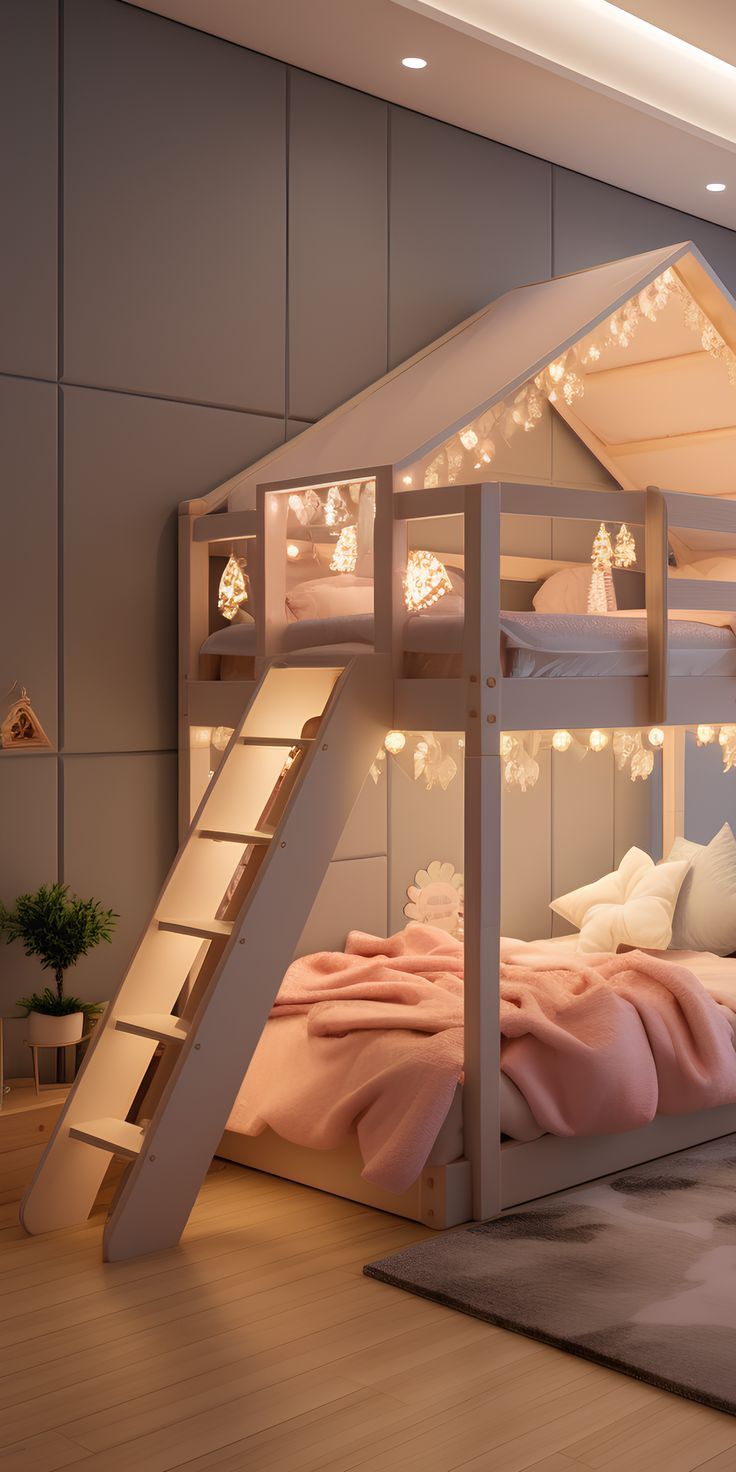 Q&A
Q&A
Q: What are some key elements to consider when designing a child-friendly room?
A: When designing a child-friendly room, some key elements to consider are safety, functionality, and creativity. It’s important to choose furniture and accessories that are safe for children to use and play with, while also keeping the room organized and functional for their needs. Adding elements of creativity, such as colorful decor or interactive features, can help stimulate a child’s imagination and create a magical space for them to enjoy.
Q: How can I create a room that is both functional and aesthetically pleasing for children?
A: To create a room that is both functional and aesthetically pleasing for children, consider incorporating storage solutions that are easily accessible to them, such as toy bins or shelves at their height. Choose furniture and decor that is durable and easy to clean, while also adding fun and playful elements like bright colors or themed decorations that reflect their interests.
Q: What are some tips for arranging furniture in a child-friendly room?
A: When arranging furniture in a child-friendly room, it’s important to create designated play areas that encourage movement and creativity. Consider placing furniture in a way that allows for easy navigation and access to toys and activities. Be mindful of creating cozy nooks for reading or quiet time, and ensure that all furniture is anchored safely to the walls to prevent accidents.
Q: How can I involve my child in the design process of their room?
A: Involving your child in the design process of their room can help them feel a sense of ownership and pride in their space. Consider letting them choose colors, decor, or themed elements that reflect their personality and interests. Encourage them to help organize and arrange their belongings, and incorporate their artwork or creations into the room’s design to make it truly their own magical space.
As an Amazon Associate I earn from qualifying purchases.
